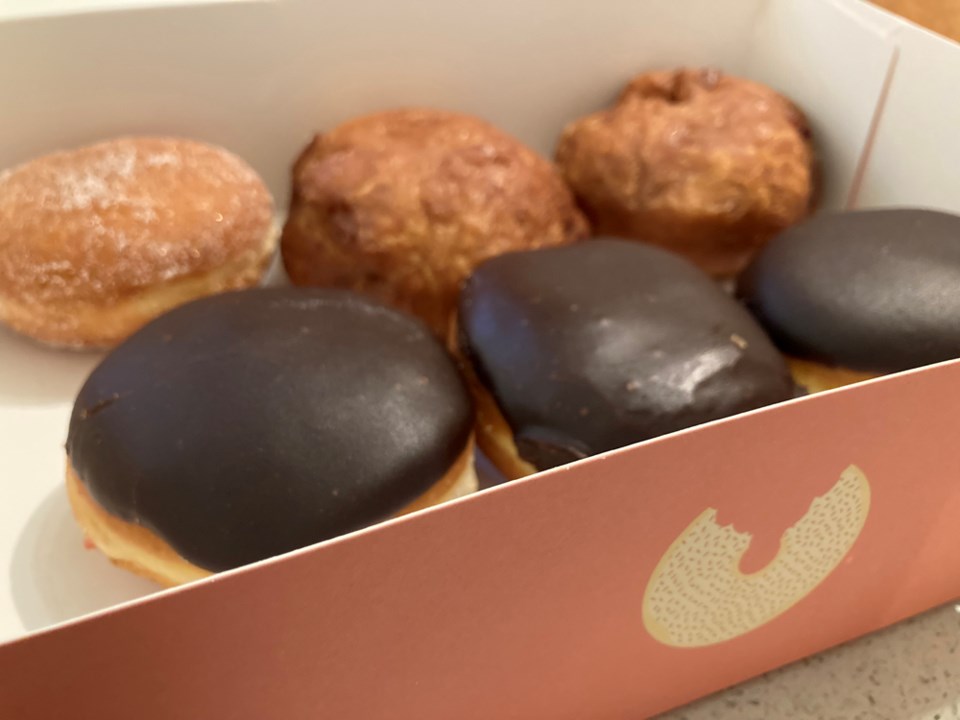This article has been amended since first posting to include a response from the Ministry of Education.
Pizza and bake-sale cupcakes won’t be unilaterally yanked from school menus, according to the province.
The Ministry of Health said it has walked back an early draft of school food guidelines, which critics said could have seen birthday cakes and hot dog days replaced with tofu, carrot sticks and millet.
West Vancouver-Capilano MLA Karin Kirkpatrick recently raised the alarm over the proposed school food rules, saying they threatened to derail parent fundraising efforts and take all the fun out of food.
Under an earlier draft of the guidelines, all food either sold or “offered” to kids at school would have had to meet criteria of being low in fat, sodium and sugar. Not only were those standards much stricter than what’s currently allowed, but the rules would have applied to volunteer-run parent fundraising efforts and events, fun fairs, sports days and classroom celebrations.
Kirkpatrick said if those rules were put in place, they threatened to derail everything from parent-run pizza days and bake sales to chocolate almond fundraisers.
“I'm not sure if the Ministry of Education wants parents to make some kind of quinoa-crusted asparagus pizzas,” she said, adding, “The kids aren’t going to want to go to broccoli day.”
Under the original school food rules shared with parents, any food brought into classrooms for sharing would also have had to pass nutritional muster, with items like birthday cupcakes falling squarely on the banned list.
The Ministry of Health recently responded to critics’ comments, saying the guidelines won’t be mandatory.
“Every school in B.C. can choose if and how they implement them,” said a ministry spokesperson in an emailed statement. “This means that any school that elects to sell treats like pizza, ice cream or other food at a fundraiser would continue to have the ability to do so.”
The ministry added the guidelines Kirkpatrick and other critics had reacted to were an “early draft” and the feedback from parents was being incorporated into a final version for 2023.
Among foods on the hit list under the original version of the proposed regulations: cookies, cakes, pies, tarts, doughnuts, cinnamon buns, candies, fudge, hot dogs – and any other lunch meat that involves too much smoking or salting (with the exception of traditional Indigenous foods), corn chips, fruit leathers, protein bars, coated granola bars, popsicles, pretzels, ice cream, chicken strips, lemonade, fruit juice and hot chocolate, just to name a few.
Favoured foods included vegetables, quinoa, unsweetened oatmeal, whole grain brown rice and whole grain pasta, tofu, cottage cheese, unsalted nuts and unsweetened yogurt.
According to the ministry, “Our goal is to develop school food guidelines that support schools in creating a healthy food environment for students, while also accounting for student preferences, special events and fundraisers, cultural preferences and accommodations for students with special dietary needs.”
In a recent poll of North Shore News readers, 43 per cent of local people responding said treats at school are OK, as long as those are in moderation. About 32 per cent of readers said they agreed with the government’s proposal to limit food in schools to healthier options. A little less than 25 per cent said the nanny state should butt out and mind their own lunch box.
[email protected]
twitter.com/JaneSeyd


